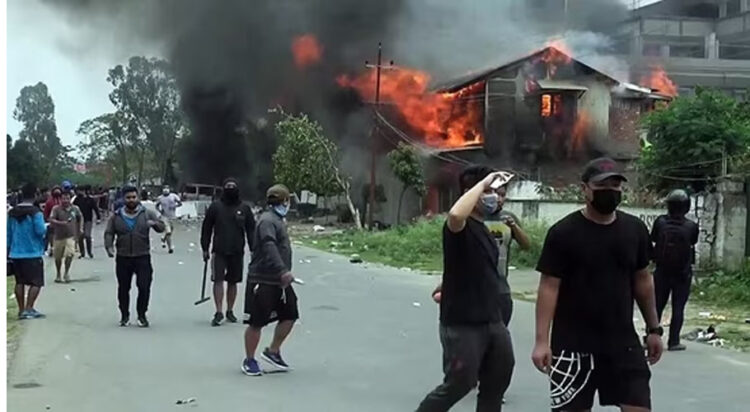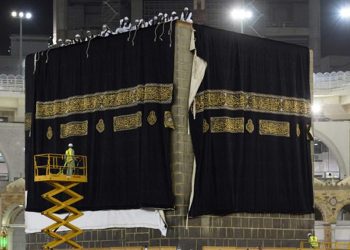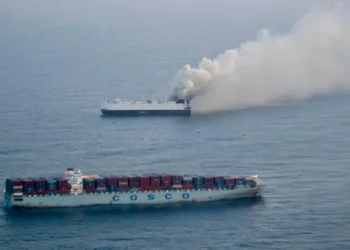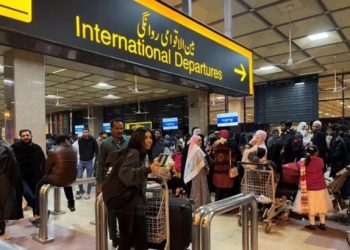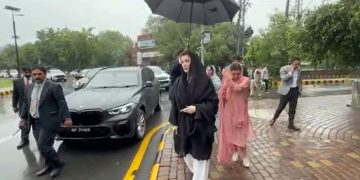Manipur, a northeastern state of India, has been engulfed in renewed unrest over the past few days, with violent protests, arson, and escalating tensions between the Meitei and Kuki communities. The root causes of this unrest are deeply intertwined with ethnic and political issues, exacerbated by recent violent incidents, communal strife, and calls for decisive action from both local and national leadership.
1. Ethnic Divide and Inter-Communal Clashes:
The ongoing unrest can largely be attributed to the deep ethnic divides between the Meitei and Kuki communities in the region. The Meitei, who predominantly inhabit the Imphal valley, are in conflict with the Kuki, a tribal group that lives mainly in the surrounding hill areas. These tensions flared in May 2023, leading to violent clashes that have claimed at least 250 lives and displaced over 60,000 people. The conflict has divided the state into two ethnic enclaves, with the Meitei controlling the valley and the Kuki dominating the hills, creating a volatile environment where both communities are increasingly isolated from one another.
2. The Jiribam Shootout and the Discovery of Decomposed Bodies:
A key trigger for the latest wave of violence was the discovery of decomposed bodies of six individuals, allegedly taken hostage after the Jiribam shootout, a violent incident in which 10 Kuki militants were killed. The bodies were found in a river, and the news sparked further anger among the Meitei community. The violent protests that followed were largely driven by a sense of injustice and the fear of further retaliation by Kuki armed groups.
This discovery fueled resentment among the Meitei, particularly in Imphal, where large mobs attacked the residences of ministers and MLAs, demanding a stronger response from the government.
3. Call for Decisive Action by Civil Society Groups:
Civil society groups, including the influential COCOMI (Coordination Committee on Manipur Integrity), have given the state and central governments an ultimatum to take “decisive action” against armed groups operating in the region. The spokesperson for COCOMI, Khuraijam Athouba, has called for a military crackdown on the armed groups, warning that failure to take concrete action would lead to greater public anger. The protesters believe that the government has not done enough to address the violence and to restore peace in the region.
4. Political Instability and Government Response:
The political situation in Manipur has also contributed to the unrest. The state’s Chief Minister, N Biren Singh, and the ruling BJP government have faced criticism for their handling of the crisis. In response to the violence, the state cabinet has urged the Centre to review and potentially withdraw the Armed Forces Special Powers Act (AFSPA) from certain areas. This controversial law grants the military sweeping powers to deal with insurgencies, and the Kuki community has called for its expansion into the valley districts, which they believe will help curb violence.
The opposition, led by Okram Ibobi Singh, has criticized the government, arguing that the constitutional machinery has broken down and that the Centre and state must take responsibility for the ongoing violence. The National People’s Party, an ally of the ruling BJP, has even withdrawn support from the government, citing a failure to resolve the crisis.
5. Recent Protests and Arson
Over the weekend, the violence escalated further as large mobs attacked the homes of lawmakers, including that of Chief Minister Singh, in retaliation for the government’s failure to control the violence. Police responded by firing tear gas, leading to several injuries. The authorities have imposed a curfew and suspended mobile and internet services in a bid to curb the unrest.
Protesters are demanding accountability for the deaths of at least two women and two children, whose bodies were discovered after going missing in the wake of the Jiribam incident. Authorities have confirmed that the bodies found are likely linked to the missing Meitei family, intensifying the community’s anger and fueling the demand for justice.
6. The Role of AFSPA and Military Presence:
In the wake of the violence, the Kuk-Zo tribal bodies have demanded that the Centre extend AFSPA to all police station areas in the Imphal Valley. They believe that the extension of AFSPA will help bring order to the region and protect their communities from the ongoing attacks. At the same time, there are calls to withdraw AFSPA from the hill districts, where the Kuki community resides, arguing that it has fueled distrust between civilians and the armed forces.
The central government has deployed additional CRPF personnel to the state, and the situation is being closely monitored, with senior police officials stating that while there is some calm, the situation remains unpredictable.
7. The Larger Crisis and Call for Justice:
Human rights activists, such as Sylvia from Kangpokpi, have voiced strong condemnation of the ongoing violence and the failure of the state and central governments to provide security to vulnerable communities. “Our cries for justice cannot be silenced anymore,” she said, calling for an end to the violence and the restoration of dignity to the people of Manipur.
The conflict in Manipur is not only a matter of ethnic tensions but also a political crisis that requires immediate action. The failure of the government to address the concerns of both the Meitei and Kuki communities has left the region in a state of turmoil, with no clear path forward for peace.







